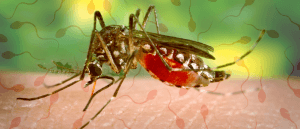
BioTechniques News
Aisha Al-Janabi

Researchers have developed unmanned vehicles that can detect mosquito breeding grounds in sewers, which could help control dengue fever.
Sewers have become breeding grounds for dengue-spreading mosquitoes in affected countries around the world. It can be difficult to monitor these areas, so researchers from Taiwan, led by the National Mosquito-Borne Diseases Control Research Center (Miaoli, Taiwan), have developed an unmanned vehicle that can take images inside sewers, alerting authorities of mosquito hotspots.
Dengue fever is a mosquito-borne disease caused by the dengue virus, which is spread by the same mosquito species that spread chikungunya, yellow fever and zika. Dengue is mostly found in urban and semi-urban areas in tropical and sub-tropical countries around the world. Due to a number of factors, such as climate change and urbanization, the incidence of dengue has increased dramatically over the past couple of decades, and about half the world’s population is now at risk of dengue. As there are no widely used vaccines for dengue, control of the disease depends on vector control and reducing mosquito density. Urbanization has caused sewers in affected countries to become breeding grounds for vector mosquitoes; however, it can be difficult to monitor the density of mosquitoes in these hidden areas.
 Immobilizing mosquito sperm could be the key to controlling mosquito populations
Immobilizing mosquito sperm could be the key to controlling mosquito populations
Researchers have analyzed proteins in mosquito sperm to find an environmentally friendly approach to managing these insects.
To overcome this, the researchers developed a device that can monitor mosquito density in sewers. The device combines a crawling robot, wire-controlled cable car and real-time monitoring system in an unmanned ground vehicle (UGV) system, which can take high-resolution, real-time images inside sewers.
They trialed the UGV from May to August 2018 in five districts in Kaohsiung city (Taiwan), which has had multiple outbreaks of dengue fever in the past 10 years and has sewers suspected to be hotspots for mosquitoes. Using gravitraps, which are simple traps used to assess the number of vector mosquitoes in the area, they found that the gravitrap indices in two of the districts were above the average, indicating high vector mosquito density.
The UGV found that there were traces of vector mosquitoes in 20.7% of inspected sewers. The positive sewers were sprayed with insecticides or high-temperature water jets by an epidemic control team. Afterwards, the researchers measured the gravitrap indices and found they dropped significantly, from 0.62 to 0.19, indicating a reduction in the density of vector mosquitoes.
The project showed that the UGVs can detect vector mosquito breeding sites, and adding a spraying system to the UGVs means they could detect and control mosquito populations in sewers.
“The widespread use of UGVs can potentially eliminate some of the breeding sources of vector mosquitoes, thereby reducing the annual prevalence of dengue fever in Kaohsiung city” commented the authors.
The post Unmanned vehicles surveil dengue-spreading mosquitoes in sewers appeared first on BioTechniques.
Full BioTechniques Article here
Powered by WPeMatico
